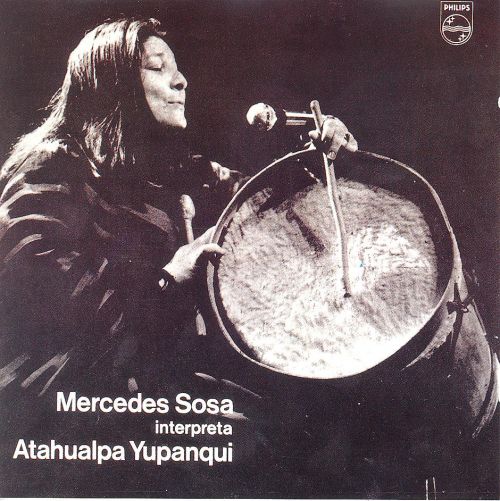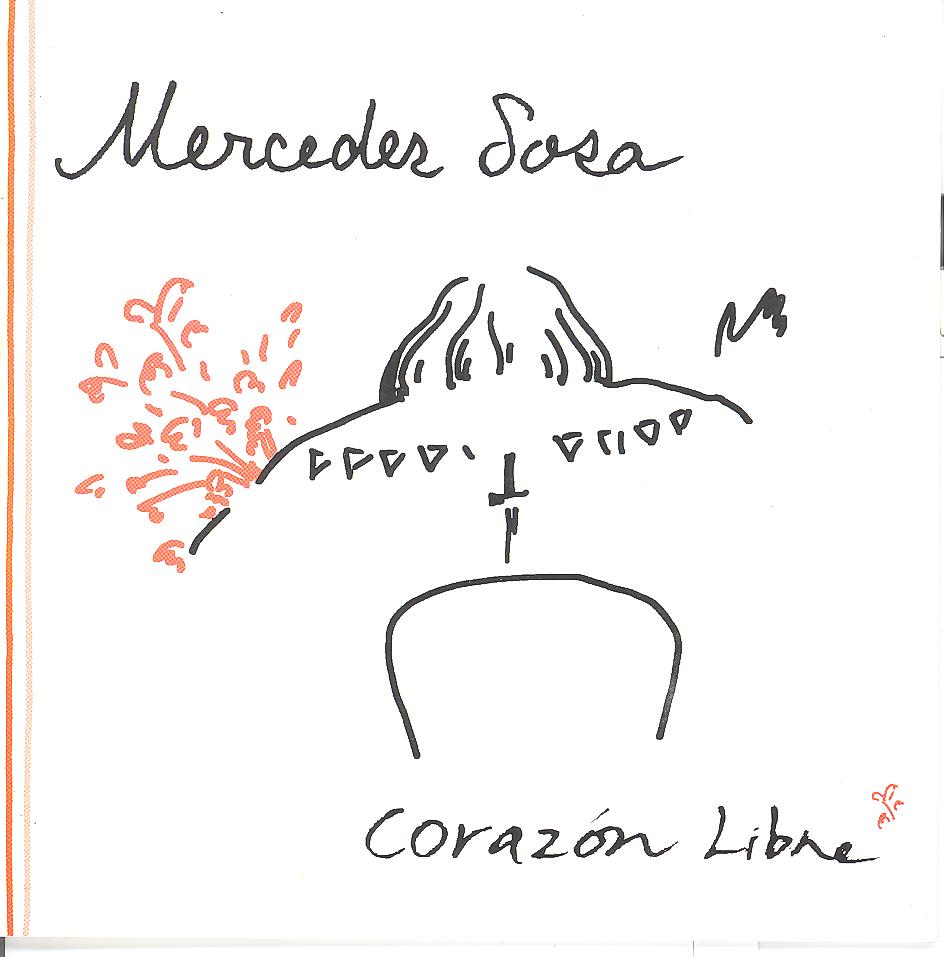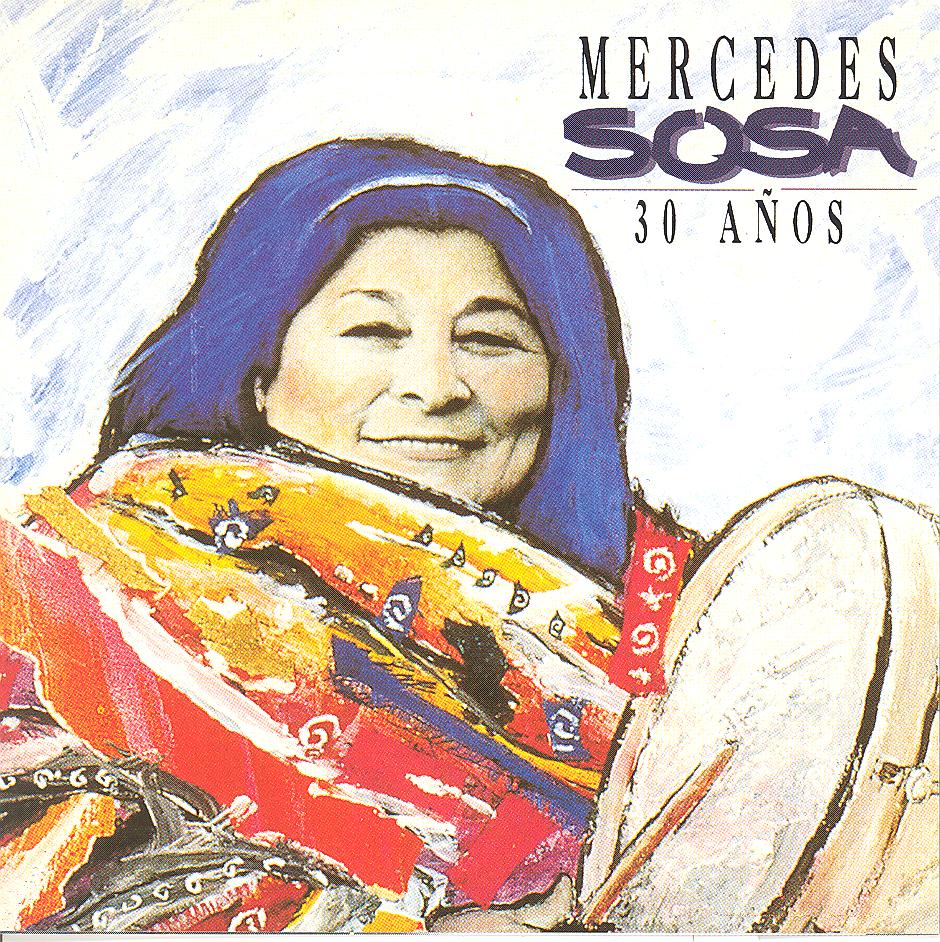
- Said ''For me singing is like talking, walking. Things we learn without realizing them"
- Mercedes Sosa The ''Negra''
''We still sing, still ask,
still dream, still hope,
in spite of our wounds
caused to our lives by the spirit of hatred
that exiled in oblivion our beloved''
The great voice of Latin America, Mercedes Sosa, the ''Negra'' as she was called, who tried to change the ugliness of the world with her songs, died during hospitalization in Buenos Aires in the early hours on Sunday 4th October 2009.
She was born in Toukouman, Argentina on 9th July 1935 and lived there until she reached the age of late puberty. She passed her childhood in poverty, though with warmth.
''I do not wish to wail like someone who has lived in hunger, poverty and cold. I lived my childhood in a poor house, which was however warmed up by the necessary feelings. My siblings an I always had the essentials, because we never lacked love. In this respect we were millionaires. Our parents have not only sacrificed their lives, but they have been wise. They never put a burden on us for their sacrifices. They gave us everything they could, without revealing to us what they had to do to achieve this. Now I realize that they both worked a lot more than normal, so that their children did not feel the lack of food, warmth and home''. Words of Mercedes Sosa who started singing in 1949.
''There is no date for the time I started singing'' she has said. ''For me singing is like talking, walking. Things we learn without realizing them. In my home, in my family there was no one having a relation with the show. But I remember singing from the far end of my life. However it is not the same to sing at home and for the world. There is a date for this. I was fourteen years old and one day school finished two hours earlier. There was a competition on the town’s radio station, LV12. I showed up more to play, rather than to sing''.
Mercedes Sosa won the competition without joy, because it was too difficult to tell her parents about it. Secretly and in fear she made two things against her parents’ wishes. Go to the radio station and sing native songs. Her father recognized her voice even with another name and slapped her face, when she returned home.
''Then he realized that I need the song. After a while I was also going to other stations and then to other cities. Wherever I was going my parents and siblings followed me'' she has said.
Her career in singing commenced however in difficult times, as she wanted to express herself in her own way and seek her personal style. Her first work appeared in 1959. She sang for the piece, the poor, the unprotected with a voice full of her own experiences and with immense passion. She was the driving force in the musical and literary movement known as the ''Nueva Cancion''. She crossed the frontiers of her country, appeared in many concerts and seduced her audience both in small rooms and huge stages.
From 1979 to 1982 she was forced to exile from her country after long prohibitions. The problems of the military regime and her great success were marked by the sorrow caused by the exile.
''I learned that when it is compulsory, it is not interesting at all. The distance may kill you…''
She found consolation in music. She believed that art and culture will always help people, that the creators have power and she fought the injustice with her own way.
''Sleep negrito because your mother is working in the plain. She works like a slave, works hard, doesn’t get paid. And she always coughs. She works for her little negrito''.
A song in an adaptation by Atahualpa Yupanqui which was performed by the ''Voice'' of Latin America in her own special way.
Mercedes Sosa introduced the culture of Argentina to the whole world and managed to express the feelings of herself and her people. Here discography consists of songs written by great artists such Atahualpa Yupanqui from Argentina, Violeta Parra and Victor Jara from Chile and many other younger musicians.
She has sung several times in Greece and appreciated the pride and passion that we had during our own struggles. She collaborated with Greek artists and loved to sing Manos Hatjidakis. She used to say that she adored the ''Lullaby'' from the ''Blood Marriage'' ofFederico Garcia Lorca in translation of Nikos Gatsos, but she was ashamed to sing it, because her Greek was not very good, while she could not perform it in Spanish, since its music was based on the Greek adaption of the lyrics.
She had various turning points in her career and her repertoire was changing like her voice with the passing of years. She collaborated with acclaimed artists such as Luciano Pavarotti, Joan Baez, Sting, Caetano Veloso and many others.
''She invited us to the garden of Democracy'' having in her soul the joyful samba that Tukumanos dance, she introduced us to Alfonsina Storni, the great poetess of Argentina who committed suicide walking to the sea ''with her solitude, searching for new poems''while, as she was singing, ''she was led by small sirens through roads spread with seaweed and corals escorted by phosphorescent sea horses''. Mercedes Sosa knew how to talk to the soul of her compatriots and of the whole world.
Renata Dikeopoulou 5 October 2009









